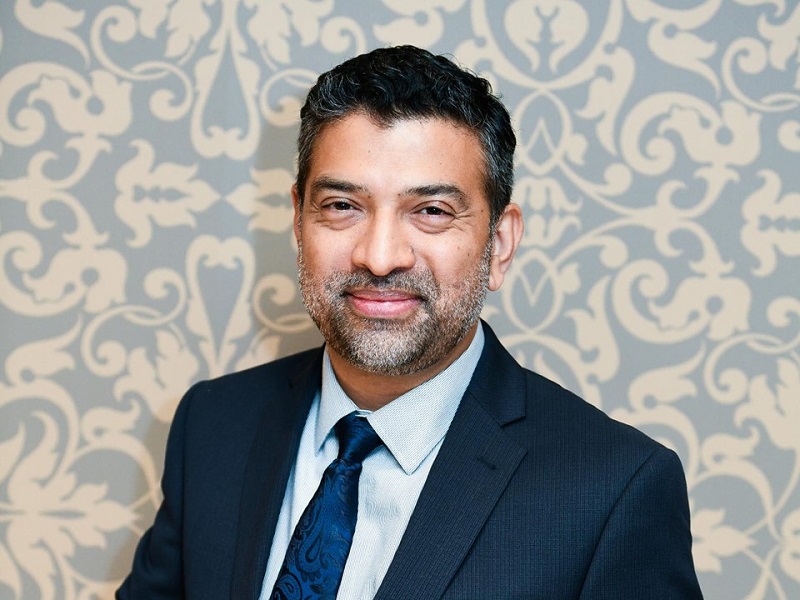
Labatt Breweries of Canada’s wide-reaching diversity, equity and inclusion strategy led to a win in the DEI program category at Benefits Canada’s 2022 Workplace Benefits Awards on Oct. 18.
“The whole team is thrilled with the win and that all their hard work and efforts have paid off,” says Robin Doobay, senior manager of total rewards at Labatt.
In 2021, Labatt grew its Network of Allies employee resource group from 27 to 38 members and moved its training program to a virtual format. The new members attended a three-day virtual workshop on their role and responsibilities as allies and the policies and resources in place to help them support their colleagues. The organization also created a DEI intranet site and a monthly digital newsletter with a section dedicated to DEI initiatives, trainings and events.
Read: Who are the winners of the 2022 Workplace Benefits Awards?
“We have some opportunities to reinforce the communications surrounding the [DEI site],” says Doobay. “We’d like to embed it into our overall communications strategy to drive traffic and make it natural for people to go there to learn, understand and discover. We’ve got really great programs and we need to continue ensuring people are aware of them and are taking advantage of these benefits — amplifying the moments that matter, personalizing the message and curating the information through the site.”
Labatt’s inaugural global DEI survey, in which employees were invited to submit demographic information on a voluntary and anonymous basis, allowed the organization to track employee demographics, identify gaps and set an action plan to support its efforts in attracting and recruiting diverse talent. The survey led to the creation of a leadership accelerator program, designed to attract, hire and retain exceptional talent from historically underrepresented Black, Indigenous and people of colour communities. To further support recruiting diverse talent, Labatt worked closely with student groups from diverse communities to provide opportunities for them to connect with the company.
Labatt also trained its senior leadership teams and managers on how to build psychologically safe
environments for their teams, which led to its inaugural Inclusivity Day in April. The event, which was held at the Rogers Centre in Toronto and broadcasted virtually to employees across the country, featured education, recognition videos submitted by employees, trust-building activities and a happy hour.
Read: Unilever wins award for expansive approach to DEI amid pandemic
The company also provided wide-ranging DEI training programs, including bias-breaking training for managers as part of the performance review process and mandatory discrimination and harassment training for all employees. It also organized a speaker series covering topics such as women in sales, DEI strategies, Indigenous communities and mental health.
“The DEI engagement scores are really high to begin with — over 80 per cent — but the strategy also increased each consecutive year for the last three or four years,” says Doobay. “We feel that [the strategy] is being adapted throughout the whole organization and is making a difference.”
In 2021, Labatt introduced a gender affirmation benefit with a $15,000 lifetime maximum and, in 2022, it launched a family-forming benefit that reimburses 80 per cent of expenses up to an overall combined maximum of $20,000. The family-forming benefit provides coverage for fertility assessment, fertility drugs and treatment, egg/sperm freezing, intrauterine insemination, in-vitro fertilization, surrogacy and adoption costs to ensure all employees receive support when planning their families.
Read: How employers are integrating DEI into their benefits plans
Last year, the organization introduced a return-to-work policy that allows all primary caregivers returning after their parental leave to coordinate a four-week return with their managers, without any reduction in pay or benefits. It also launched a global parenting survey and recognized National Truth and Reconciliation Day as a paid holiday for all employees who have salaried benefits.
Doobay says the organization’s DEI strategy has paid off on many levels. “Our turnover this year has been lower than what we’ve seen at other companies. We believe that’s due to a number of different talent management strategies, including how our DEI initiatives are blended into mental-health supports, training and learning development and compensation — it all ties together and are pieces of the overall puzzle.”
Read: How HOOPP is increasing DEI focus in culture, recruitment strategies
